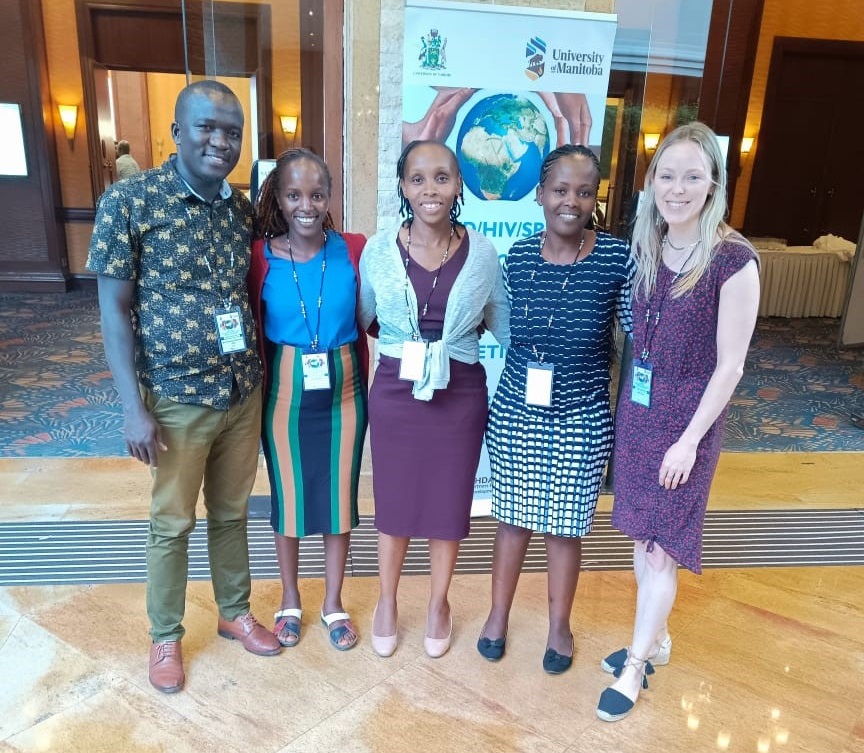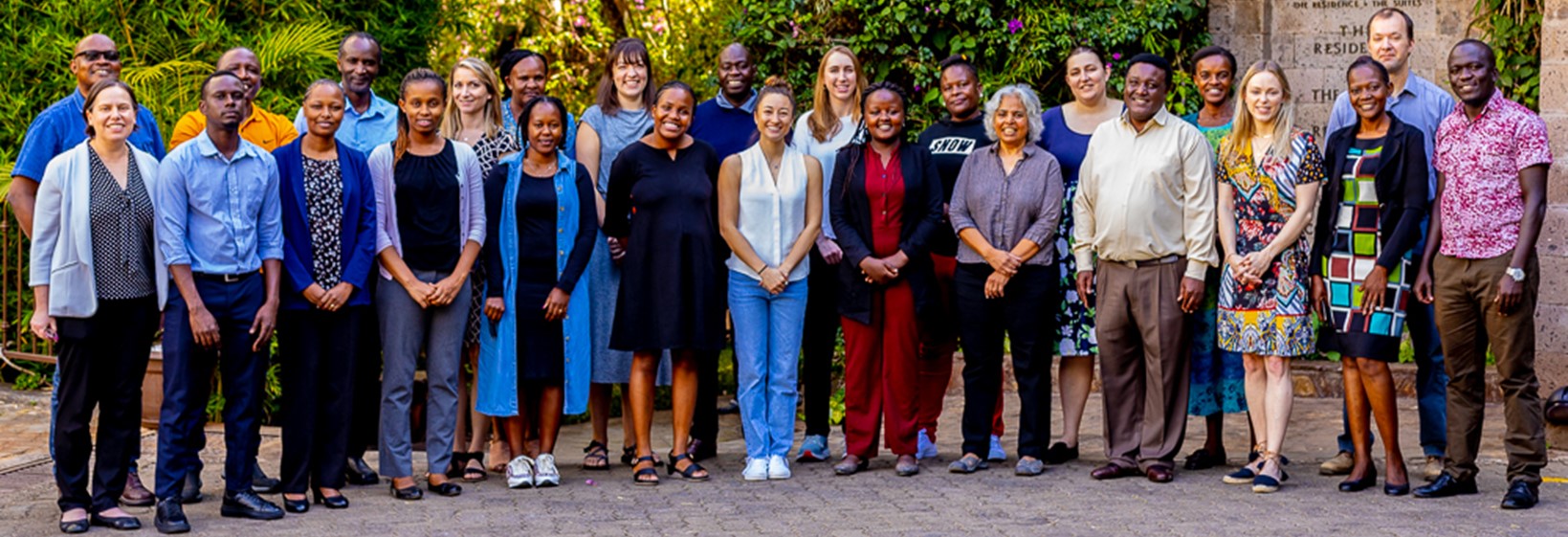March 31, 2023
Sikiliza Mama study centers patients’ needs to inform perinatal mental health services
Categories: HIV, Mental Health, Research

Sikiliza Mama study team members from left to right: Ben Ochieng, Joan Mutahi, Helen Moraa, Winnie Atieno, Anna Larsen
The Sikiliza Mama (Kiswahili for “Listen to Mama”) study, funded by a UW Behavioral Research Center for HIV (BIRCH) Community Centered Pilot AIDS Research Center (C-PARC) award, recently initiated qualitative data collection. The team is using a human-centered design approach to conduct in-depth interviews among perinatal women with likely depression and/or anxiety to evaluate acceptability of existing formal and informal mental health services. The findings can help inform patient-centered perinatal mood and anxiety disorders (PMAD) services for women at risk for HIV and women living with HIV and result in better maternal and infant outcomes. (more…)
March 22, 2023
New review of WHO HIV testing guidelines informs effective strategies to increase uptake of testing services
Categories: HIV, Publication
A new systematic review and meta-analysis published in PLOS Medicine informed World Health Organization (WHO) 2019 HIV testing guidelines and assessed the research question, “Which demand creation strategies are effective for enhancing uptake of HIV testing services?” focused on populations globally. HIV testing services (HTS) are the first step in reaching the UNAIDS 95-95-95 goals for HIV management and control. Evaluating the effectiveness of different demand creation interventions to increase uptake of HTS is useful to prioritize limited programmatic resources.
(more…)
March 9, 2023
Researchers attend the 2023 Conference on Retroviruses and Opportunistic Infections in Seattle
Categories: Conferences, HIV and Co-Infections, Research

This year, the annual Conference on Retroviruses and Opportunistic Infections (CROI) was held in Global WACh’s hometown of Seattle, WA from February 19-22, 2023. CROI is the premier annual scientific conference for the epidemiology and biology of human retroviruses and associated diseases. For the past 30 years, CROI has been a global convening of leading scientists, clinicians, public health experts, among others, where discoveries have been presented that have helped to accelerate progress in HIV/AIDS research.
We’ve compiled a list of 12 accepted poster abstracts with contributions by Global WACh researchers and collaborators. Click on the titles to read the poster. (more…)
March 3, 2023
Researchers convene in Nairobi, Kenya on future childhood development research
Categories: Awards, Children, HIV and Co-Infections, Research

A two-day convening in January in Nairobi, Kenya brought together over 30 investigators from a variety of Kenyatta National Hospital, University of Nairobi, and University of Washington studies that include components of assessing childhood neurodevelopment and mental health. This meeting provided a forum to understand how to leverage the recently awarded Impact of Microbiome, Immune Activation and Drug on Neurodevelopment (MIND) Program for ongoing and future childhood development research. Over the course of the meeting, attendees discussed and prioritized the activities for a new MIND Center of Excellence (CoE) that builds off the program. To briefly summarize, the activities include: (more…)
March 2, 2023
New study focuses on immune function to improve treatment of severely malnourished children worldwide
Categories: Awards, Children, Nutrition, Research
 Severe acute malnutrition (SAM) remains a global public health emergency, especially among young children in limited resource settings who are not consuming enough energy, fat, protein, and other nutrients to maintain healthy bodily functions. This places children at high risk of life-threatening infectious diseases, such as diarrhea and pneumonia. Severely malnourished children are often treated at inpatient and outpatient hospital clinics or feeding centers, using protocols promoted by the World Health Organization (WHO). Treatment currently focuses on initial recovery as defined by anthropometric standards without adequately addressing the health of children after discharge from treatment programs. (more…)
Severe acute malnutrition (SAM) remains a global public health emergency, especially among young children in limited resource settings who are not consuming enough energy, fat, protein, and other nutrients to maintain healthy bodily functions. This places children at high risk of life-threatening infectious diseases, such as diarrhea and pneumonia. Severely malnourished children are often treated at inpatient and outpatient hospital clinics or feeding centers, using protocols promoted by the World Health Organization (WHO). Treatment currently focuses on initial recovery as defined by anthropometric standards without adequately addressing the health of children after discharge from treatment programs. (more…)